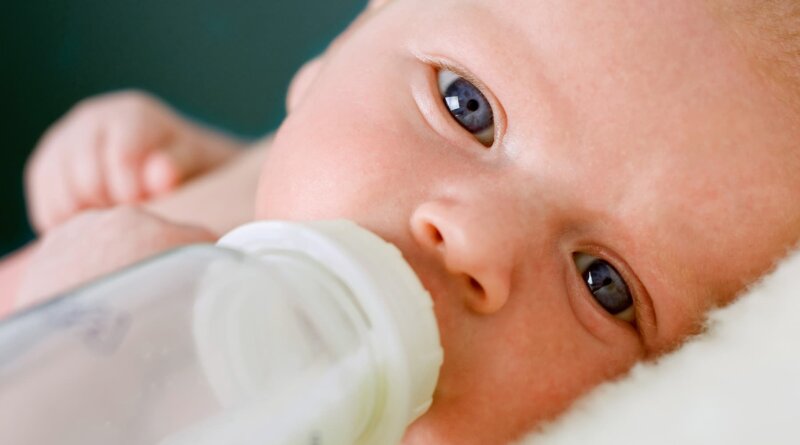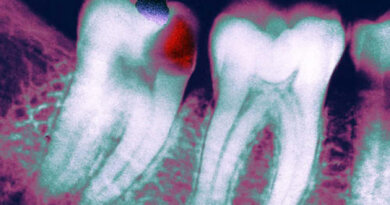Can You Breastfeed if You Have HIV?
Baby formula is recommended for moms living with HIV in the U.S. because of a slim chance that babies may contract HIV through breast milk.
Women living with HIV who take antiretroviral therapy and have undetectable viral loads may give birth to HIV-free babies. They may see “breast is best” posters in their doctors’ offices and wish to breastfeed their babies. But they may not think that it’s an option for them.
“Everyone knows there are numerous health benefits from breastfeeding, even compared to formula feeding,” says Patrick Jean-Philippe, MD. He’s the chief of the maternal, adolescent and pediatric research branch in the AIDS division of the National Institutes of Health’s National Institute of Allergy and Infectious Diseases.
But for women living with HIV, Jean-Philippe says, ”this is where the benefits of breastfeeding versus the risk of transmission may become a little bit in the gray zone.”
What Is the Risk of HIV Transmission From Breastfeeding?
An NIH-funded study conducted in six African nations (South Africa, Malawi, Tanzania, Uganda, Zambia, and Zimbabwe) and India tracked the risk of a baby getting HIV from breastfeeding. The researchers found that when women with HIV took antiretroviral therapy while breastfeeding, it nearly eliminated the risk of HIV transmission. Less than 1% of babies – specifically, 0.6% – who were breastfed for a year contracted HIV through breast milk.
But the transmission rate isn’t zero. So breastfeeding isn’t recommended in the U.S for women with HIV.
The CDC’s website states that this recommendation has been in place since 1985 and “remains consistent with the most up-to-date scientific literature and is considered best practices for preventing HIV transmission.”
In 2021, a panel of experts made a slightly more nuanced recommendation to the U.S. Department of Health and Human Services. The panel states that breastfeeding isn’t recommended for people with HIV – but that if someone with HIV decides to breastfeed, their doctor should provide patient-centered, evidence-based counseling on infant feeding options to help minimize the risk of HIV transmission.
In its report, the panel made clear, in bold print, that this part of their recommendations “is not intended to be an endorsement of breastfeeding, nor to imply that breastfeeding is recommended for individuals with HIV in the United States.” HHS has not adopted the panel’s recommendations yet.
When a Mom With HIV Wants to Breastfeed
“Choosing to breast/chest feed is a reasonable choice and, in fact, the optimal choice for some families,” says Deborah Cohan, MD, MPH, professor of obstetrics, gynecology, and reproductive sciences at UCSF and medical director for HIVE at San Francisco General Hospital, which provides prenatal care to women living with HIV. “While we as providers may have our own bias and discomfort, we need to support our patients making choices for themselves.”
“There is this ongoing concern that … someone could face criminalization issues, and that’s really going to impact Black women and other women of color more than white women,” says Krista Martel, executive director of The Well Project, a nonprofit organization that supports women living with HIV who want to breastfeed.
Martel and Cohan say there are even anecdotal reports that some doctors may call Child Protective Services out of concern about the risk.
Some women with HIV look for doctors who support their choice to breastfeed – whether it’s something they want to do or if they’re having trouble finding formula feeding products during the current shortage.
New parents and their doctors can discuss the risks and benefits. “With shared decision-making, they can [ensure] that the woman is at the lowest risk,” Jean-Philippe says.
Meds Matter
People with HIV who breastfeed must continue taking antiretroviral therapy to treat their HIV. They should visit the doctor monthly to confirm that their viral load is still suppressed.
“This is optimal for their health too, not just related to preventing HIV transmission to their baby,” Cohan says. She says they try to engage pregnant patients about what will help with that so that they’re ready when the “sleepless nights and all the ups-and-downs of being postpartum” kick in.
Women should feel confident that taking antiretroviral medication is safe if they are breastfeeding. Some doctors also prescribe medication for babies, to lower the risk of transmission.
“Generally, we think antiretrovirals taken by the pregnant and lactating person is safe for the babies,” Cohan says. “Almost all antiretrovirals studied so far are associated with low levels in the infant blood when ingested via the milk. There are no antiretrovirals that appear to be specifically unsafe for babies via milk.”
One Mom’s Story
Ciarra “Ci Ci” Covin of Philadelphia, a woman living with HIV, became pregnant in 2010. She says that she was told that she couldn’t breastfeed her baby. So she used formula. When Covin became pregnant again in 2021, she took a different approach. Covin was on staff with the Well Project and says she had spoken with many doctors who supported breastfeeding among women living with HIV. That gave her confidence to find new doctors who would support her choice to breastfeed.
“The infectious disease [specialist], OB/GYN, and pediatrician — they were all on the same board that was allowing for shared, informed decision-making,” Covin says. “I was willing to take that [less than 1% transmission] risk.”
While Covin breastfed her daughter, the baby received medication to reduce the risk of transmission. Covin’s daughter is HIV-free, and Covin is thankful for the experience.
“I had to reframe my thinking” about doctors, Covin says. “I have goals and quality of life, [and] I just need you to support me.”




